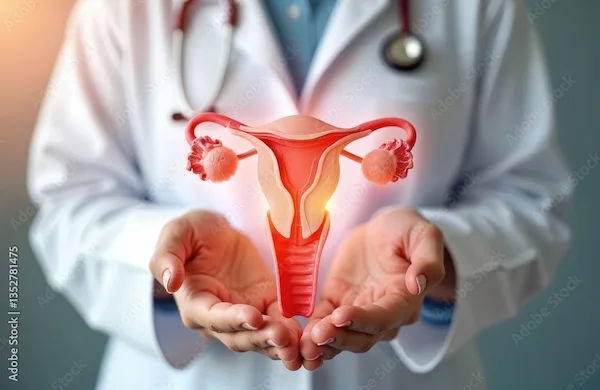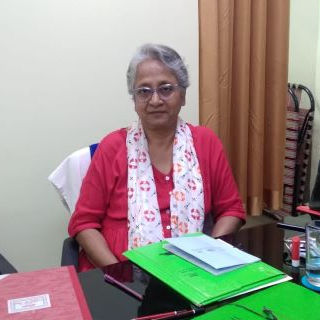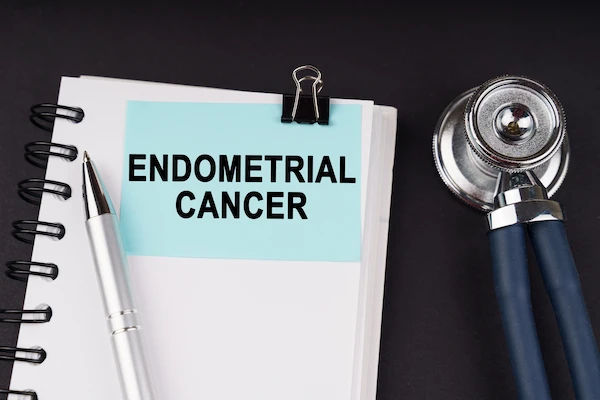Anxiety After Hysterectomy With Ovaries Kept Intact
Struggling with anxiety after a hysterectomy even though your ovaries were preserved? Learn why it happens, symptoms to watch for, and how to manage it effectively.

Written by Dr.Sonia Bhatt
Last updated on 8th Jul, 2025

Introduction
If you've had a hysterectomy but kept your ovaries, you might be surprised to find yourself struggling with anxiety afterward. Many women assume that since their ovaries are intact, their hormones will remain balanced, and they won’t experience emotional changes. However, anxiety after a hysterectomy—even with ovaries preserved—is more common than you might think.
In this article, we’ll explore why this happens, what symptoms to watch for, and practical ways to manage anxiety post-surgery.
Consult Top Specialists for Personalised Advice
Why Does Anxiety Happen After Hysterectomy If Ovaries Are Kept?
Even though your ovaries continue producing hormones after a hysterectomy, the surgery itself can still disrupt your emotional well-being. Here’s why:
1. Hormonal Fluctuations – While your ovaries still produce estrogen and progesterone, the surgery can temporarily affect blood flow to them, leading to short-term hormonal imbalances. This can trigger mood swings, anxiety, or even symptoms similar to menopause.
2. Psychological Impact – A hysterectomy is a major surgery, and the emotional adjustment can be significant. Some women feel a sense of loss, grief, or worry about changes in their bodies, femininity, or sexual health.
3. Surgical Stress on the Body – Any major surgery puts stress on the body, which can temporarily increase cortisol (the stress hormone) levels, contributing to anxiety.
4. Lack of Awareness – Many women aren’t warned about the possibility of post-hysterectomy anxiety, making it feel unexpected and isolating.
Common Symptoms of Anxiety After Hysterectomy
If you're experiencing any of the following after your surgery, it could be anxiety:
Persistent worry or fear
Racing thoughts
Trouble sleeping (insomnia)
Irritability or mood swings
Heart palpitations or shortness of breath
Panic attacks; sudden intense fear with physical symptoms
Avoiding social situations
If these symptoms last for weeks or interfere with daily life, it’s important to seek help.
How to Manage Anxiety After Hysterectomy?
The good news is that anxiety after hysterectomy is manageable. Here are some effective strategies:
1. Give Yourself Time to Heal
Your body has undergone a major change, and recovery takes time—both physically and emotionally. Be patient with yourself.
2. Stay Connected
Talk to friends, family, or a support group. Many women find comfort in sharing their experiences with others who’ve been through the same thing.
3. Practice Relaxation Techniques
Deep breathing practices, such as inhaling for four counts, holding for four, and exhaling for six
Mindfulness and meditation, which may help calm the mind
Gentle yoga or stretching routines that encourage relaxation
4. Maintain a Healthy Lifestyle
Engage in regular physical activity, such as walking or light workouts
Focus on nutritious meals that include whole foods and healthy fats
Limit intake of sugar and caffeine, which may heighten anxiety
Establish a bedtime routine to support restful sleep
5. Consider Therapy or Counseling
If anxiety feels overwhelming, a therapist can help you process emotions and develop coping strategies. Cognitive Behavioral Therapy (CBT) is particularly effective for anxiety.
6. Check Hormone Levels
If symptoms persist, ask your doctor about checking your hormone levels. Even with ovaries intact, some women experience imbalances that may need attention.
7. Medication (If Needed)
In some cases, short-term anti-anxiety medication or hormone therapy may be recommended. Always consult a doctor before starting any medication.
When to Seek Professional Help
You may want to speak with a healthcare professional if anxiety is:
Severe or worsening over time
Causing panic attacks
Affecting your work, relationships, or daily life
Leading to depression or hopelessness
Prompt medical attention might improve both your emotional and physical recovery.
Final Thoughts: You’re Not Alone
Anxiety following a hysterectomy—even with ovaries preserved—may be more common than often discussed. Emotional fluctuations may be influenced by hormonal, psychological, and physical factors, all of which deserve compassionate attention.
Recognising what you are experiencing and taking steps toward recovery might make a meaningful difference. Support is available, and you don’t have to navigate this alone.
If you are struggling with anxiety or need personalised care, consider booking an appointment with a psychologist or women's health expert through Apollo 24|7.
Consult Top Psychologists
Consult Top Specialists for Personalised Advice

Mr. Aman Kochhar
Psychologist
2 Years • MA - Psychology, Post Graduate Diploma In Guidance and Counselling
New Delhi
Well-mind Counselling, New Delhi

Ms. Mansi Kothari
Psychologist
7 Years • MA - Psychology
Gurugram
Soulful, Gurugram
(75+ Patients)

Ms. Moumita Ganguly
Psychologist
13 Years • B.ED(Special) Visual Impairment , PG.Diploma in Rehabilitation psychology
Kolkata
M’s Clinic, Kolkata
(125+ Patients)

Ms Rupa Talukdar
Psychologist
28 Years • PGD in Rehabilitation psychology, Phd
Kolkata
Mind's Eye, Dr Rupa Talukdar, Kolkata

Dr. Keerti Singh
Psychologist
5 Years • BA, MA, Ph.D Psychology
Kolkata
Serenity Mindcare (A Neuropsychiatry Clinic), Kolkata
Consult Top Psychologists

Mr. Aman Kochhar
Psychologist
2 Years • MA - Psychology, Post Graduate Diploma In Guidance and Counselling
New Delhi
Well-mind Counselling, New Delhi

Ms. Mansi Kothari
Psychologist
7 Years • MA - Psychology
Gurugram
Soulful, Gurugram
(75+ Patients)

Ms. Moumita Ganguly
Psychologist
13 Years • B.ED(Special) Visual Impairment , PG.Diploma in Rehabilitation psychology
Kolkata
M’s Clinic, Kolkata
(125+ Patients)

Ms Rupa Talukdar
Psychologist
28 Years • PGD in Rehabilitation psychology, Phd
Kolkata
Mind's Eye, Dr Rupa Talukdar, Kolkata

Dr. Keerti Singh
Psychologist
5 Years • BA, MA, Ph.D Psychology
Kolkata
Serenity Mindcare (A Neuropsychiatry Clinic), Kolkata




